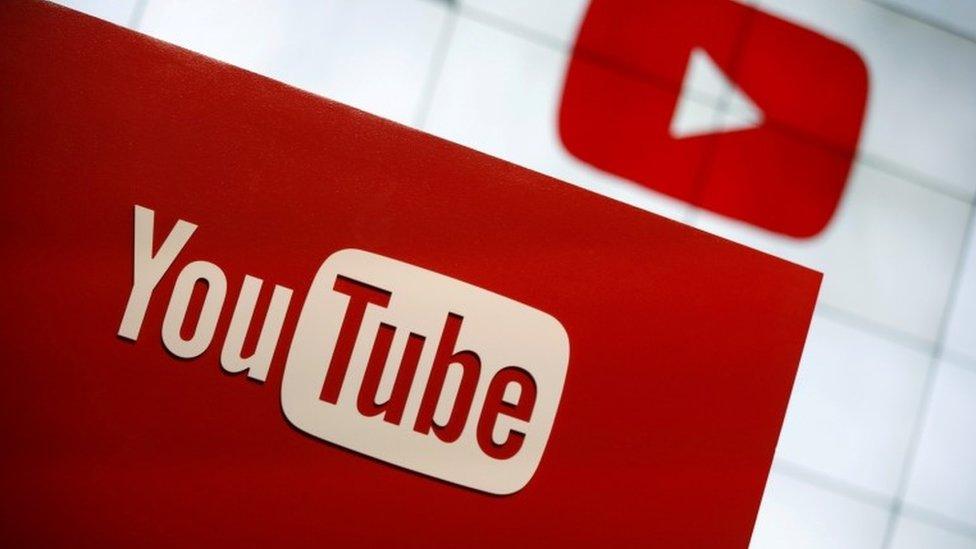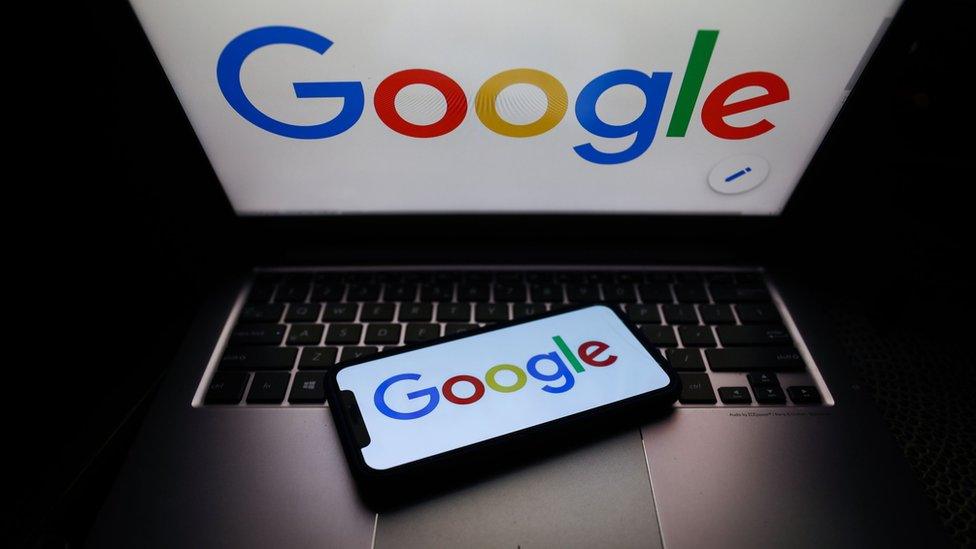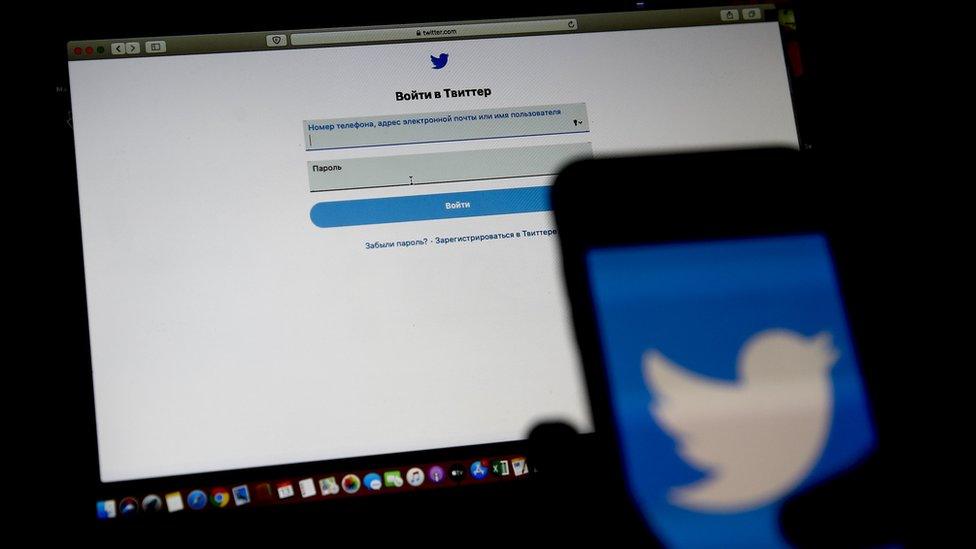Russia threatens YouTube ban for deleting RT channels
- Published

Russia has threatened to ban YouTube if it does not reinstate two German-language channels backed by the Russian state that were deleted for violating Covid misinformation guidelines.
Russian media watchdog Roskomnadzor accused YouTube of censorship.
The agency ”demanded” that the channels be restored.
It comes as YouTube also expanded its misinformation policies to cover all effective vaccines, not just Covid ones.
The tech firm said the measles, mumps and rubella (MMR) vaccine being falsely attributed to causing autism, was one example of the types of content the new policy will cover which had previously been allowed.
Defying suspension
In the Russian argument, RT DE had already received a warning from YouTube for breaching coronavirus misinformation guidelines.
It was given a week-long suspension from posting on the platform.
During this time, RT used a second channel - Der Fehlende Part - to upload content which also violated these policies.
As a result, both were deleted by YouTube.
But the move may have repercussions.
Internet service providers in Russia can limit or block the flow of data to websites, as instructed by the government.
The state used these powers in March to restrict access to Twitter after Roskomnadzor said it failed to remove around 3,000 posts allegedly involving banned content.
In May, it also threatened to slow down YouTube for failing to remove videos it said were ”unlawful”.
“YouTube has always had clear community guidelines that outline what is allowed on the platform,” a spokesperson for the platform said.
In August, Sky News Australia was suspended on the platform for a week after posting videos that denied the existence of Covid and encouraged the use of unproven and potentially dangerous treatments hydroxychloroquine and ivermectin.

Russia's information war
Analysis by Alistair Coleman, BBC Monitoring
The Russian YouTube channels were taken down for posting misinformation about Covid and trying to evade a YouTube-imposed ban. Previously, they've been accused by Germany of 'manipulative' reporting on anti-lockdown protests, and for spreading divisive content ahead of last week's election.
YouTube's move to suspend the Russian state-operated channels has been met by predictable outrage from Moscow, which portrays itself as an innocent victim of US-backed 'Russophobia', trying to silence its voice abroad.
The affair is being portrayed by the Russian government as information warfare instigated by Germany, calling this incident "Operation Media Barbarossa", a reference to the Nazi invasion of Russia in 1941.
And it's expressing its anger through predictable means - suggesting that retaliatory measures are in the pipeline not only against YouTube, but also German broadcasters in Russia.
We can expect at least some sort of action from Moscow. RT's editor-in-chief Margarita Simonyan - a close friend of Vladimir Putin - says that she was looking forward to Moscow "banning Deutsche Welle and other German media outlets".
It's a predictable dance faced by governments and - increasingly - the big tech companies. How far can they tolerate misinformation from foreign broadcasters if their own media organisations get caught in the retaliatory crossfire?

YouTube's new rules on misinformation, meanwhile, mean any videos containing misinformation about any vaccine that has been approved by health authorities will be removed.
Under its previous guidelines, these videos would not be promoted by the website - meaning fewer views - but would not be deleted outright.
YouTube said it has removed 130,000 pieces of content related to Covid vaccine misinformation since last year, as part of a total of one million videos removed by the platform for spreading Covid-related misinformation.
Related topics
- Published1 August 2021

- Published25 May 2021

- Published10 March 2021
